Donald Trump didn’t want Judge Tanya Chutkan to publicly release the appendix Special Counsel Jack Smith attached to his motion arguing that all of the charges against Trump could move forward despite the Supreme Court’s ruling in the immunity appeal. The appendix contains the evidence that Smith argues is admissible to support the charges against Trump.
Chutkan ruled last week that she would make the appendix public—there’s a strong presumption that materials filed in a criminal case should be made public. But she gave Trump time to review his options. That period of time came to a close today when Trump filed a request that she delay her stay just “briefly” until November 14, which happens to fall conveniently after the election.
Judge Chutkan’s response didn’t take long. She denied Trump’s request this evening in a five-page order. The appendix will be unsealed tomorrow, Friday.
In his filing this morning, Trump asked the Judge to delay the release so he could release his own appendix. He claimed that was necessary because Jack Smith is "cherry-picking" the evidence, and even if he doesn’t intend to interfere with the election, that’s the effect. Judge Chutkan has repeatedly reminded Trump’s lawyers she’s running a courtroom, not an election.
Chutkan’s opinion is five devastating pages long. She makes a few key points that are worth noting.
There is an “important presumption” that the public should have access to “all facets of criminal proceedings.” Documents should only be kept under seal where the circumstances of the case or interests of the parties outweigh the public’s—and the press’s—First Amendment rights.
Judge Chutkan lays out the six factors courts have used to perform this balancing test before, noting that Trump doesn’t “engage” with any of them. Instead, she writes, Trump offered “other interests” as justification for keeping the appendix under seal. She concludes none of them are persuasive.
The Judge easily swats aside all of Trump’s arguments, which include:
A claim that future jurors might be exposed to Smith’s materials and tainted. Judge Chutkan responds that it is both highly speculative and, if it occurs, an issue that can be addressed during jury selection.
An argument that the public shouldn’t be misled about the SCOTUS immunity decision by “one-sided submissions.” Chutkan responds that Trump is “free to submit his legal arguments and factual proffers regarding immunity at any point before the November 7, 2024 deadline.” His brief was originally due this month, but Trump’s own lawyers asked for a continuance until after the election. Quoting her earlier order, she writes, “This ‘is simply how litigation works: Each side presents arguments and proffers evidence on disputed issues.’”
Trump argues that what he calls the “asymmetric” release of these materials could impact the “bold and unhesitating” action required of a president. The Judge reminds Trump the Supreme Court itself ordered her to conduct this inquiry into the facts so final decisions about what falls within the scope of immunity could be made and that the briefing schedule he proposed would have also been asymmetric. She concludes his concerns here are about the political race, not the prosecution, and reiterates from her earlier order that “the court has repeatedly stressed that ‘Defendant’s concern with the political consequences of these proceedings does not bear on the pretrial schedule.’”
Trump also argues that the Judge is engaging in election interference. But here, Judge Chutkan’s response is strong and irrefutable, especially in light of the strong presumption courts will make proceedings in a criminal case available to the public. She writes, “it is in fact Defendant’s requested relief that risks undermining that public interest: If the court withheld information that the public otherwise had a right to access solely because of the potential political consequences of releasing it, that withholding could itself constitute—or appear to be—election interference. The court will therefore continue to keep political considerations out of its decision-making, rather than incorporating them as Defendant requests. Any argument about ‘what needs to happen before or shouldn’t happen before the election is not relevant here.”’
The bottom line is that courts have enormous discretion about how they conduct proceedings before them. Judge Chutkan has a reputation for being efficient and no-nonsense. She lives up to it here. Trump’s complaint is about the fact that, unlike in other court proceedings, the Judge isn’t doing him any favors. Chutkan is not one-sided in her rulings. Yesterday, she ordered the Special Counsel to search for additional discovery materials Trump requested, and to expand the government offices he includes in that search process. But here, she has adopted a principled approach of not considering the election as a factor that should drive the schedule in her case. As she points out eloquently, doing otherwise would, in fact, be a form of election interference.
Tomorrow, Jack Smith’s appendix becomes public.
Trump doesn’t like it when the courts treat both sides fairly. He wins when he is treated preferentially, so he wants that to always be the case. But Judge Chutkan is old school. There is none of that in her courtroom. Apparently, she still believes that no one is above the law. Her belief in that bedrock principle of American democracy has the power to make it so. That’s why it’s so important to have federal judges with both intelligence and integrity.
Thank you for reading Civil Discourse. I really appreciate that you’re here with me. If you aren’t already, I hope you’ll consider becoming a paid subscriber, which lets me devote the time and resources it takes to write the newsletter.
We’re in this together,
Joyce



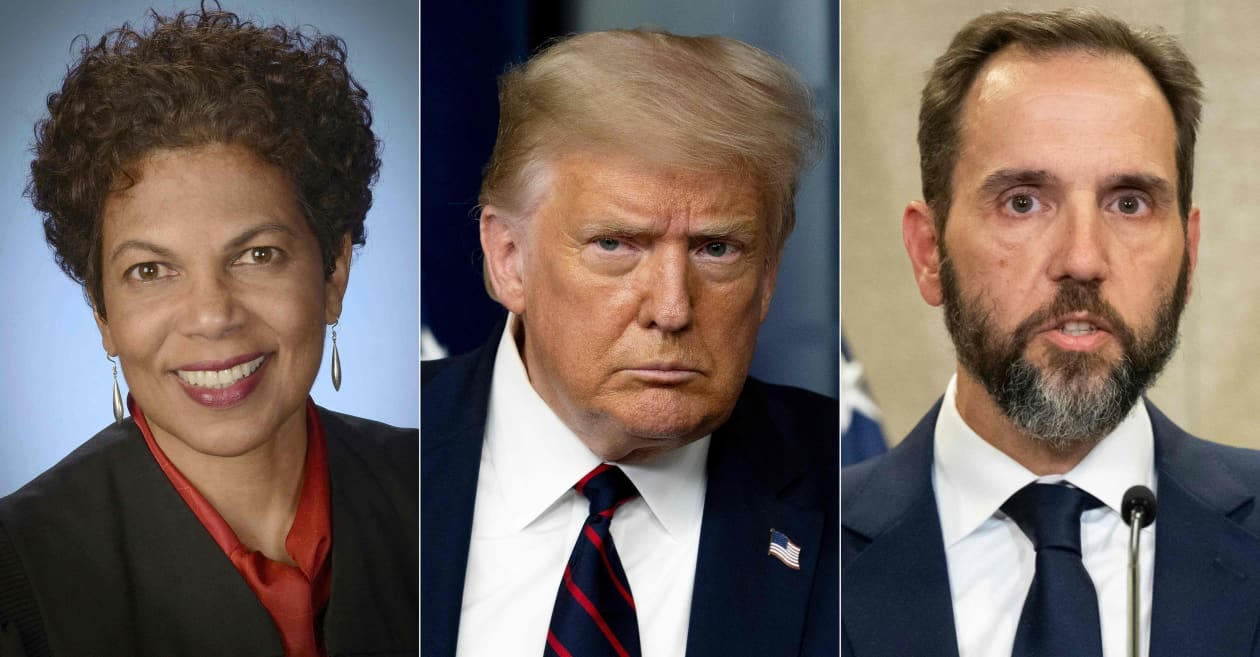
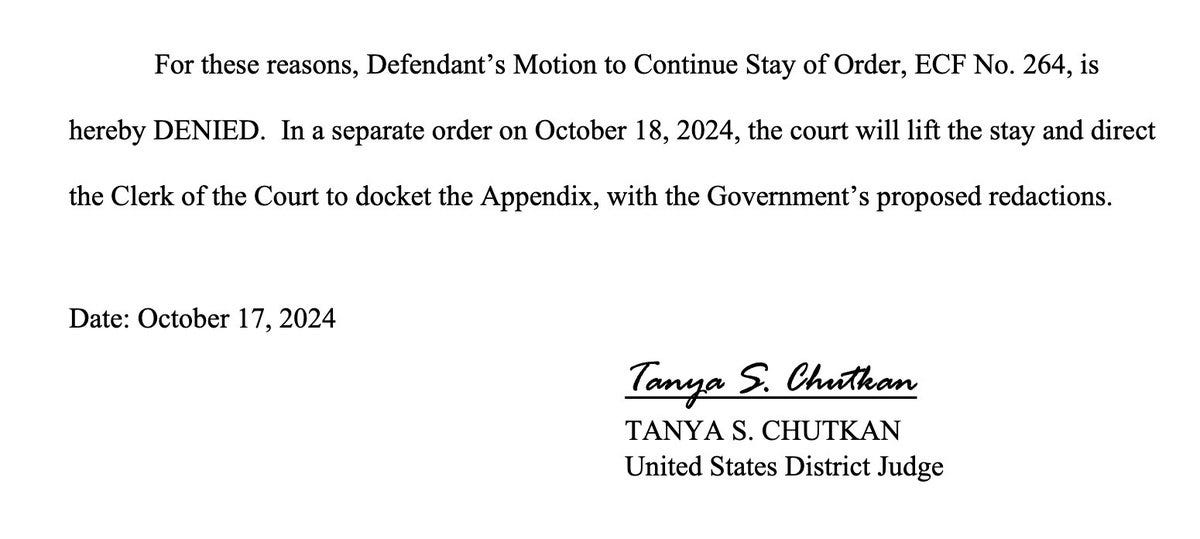
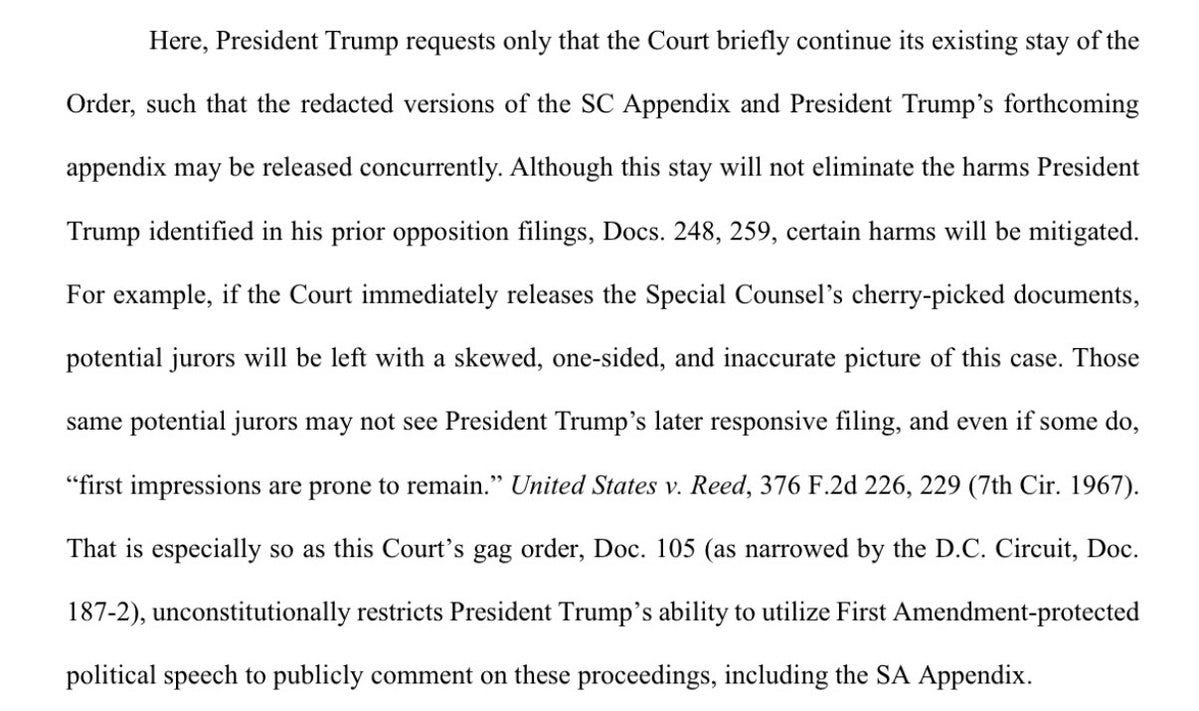
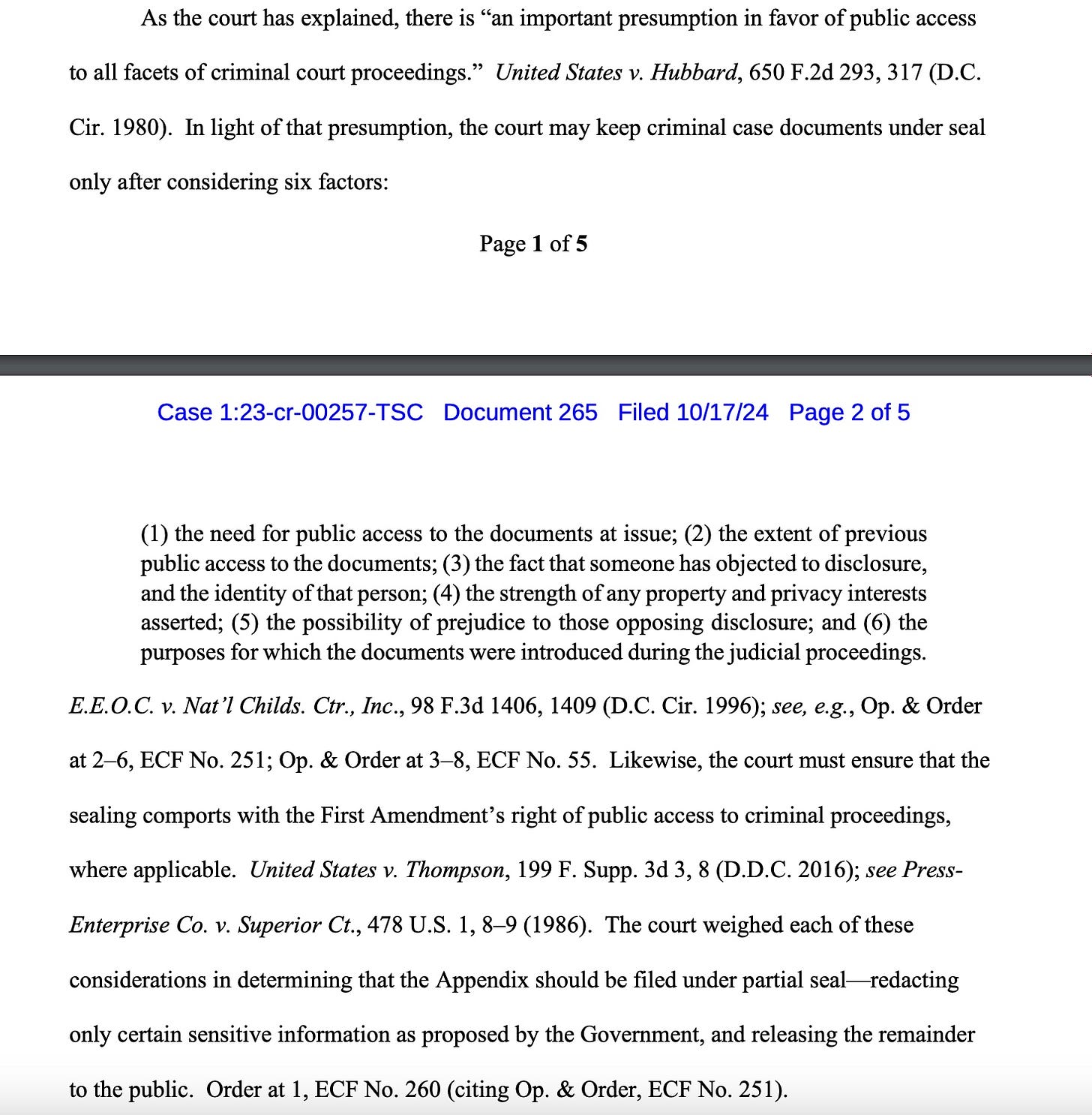
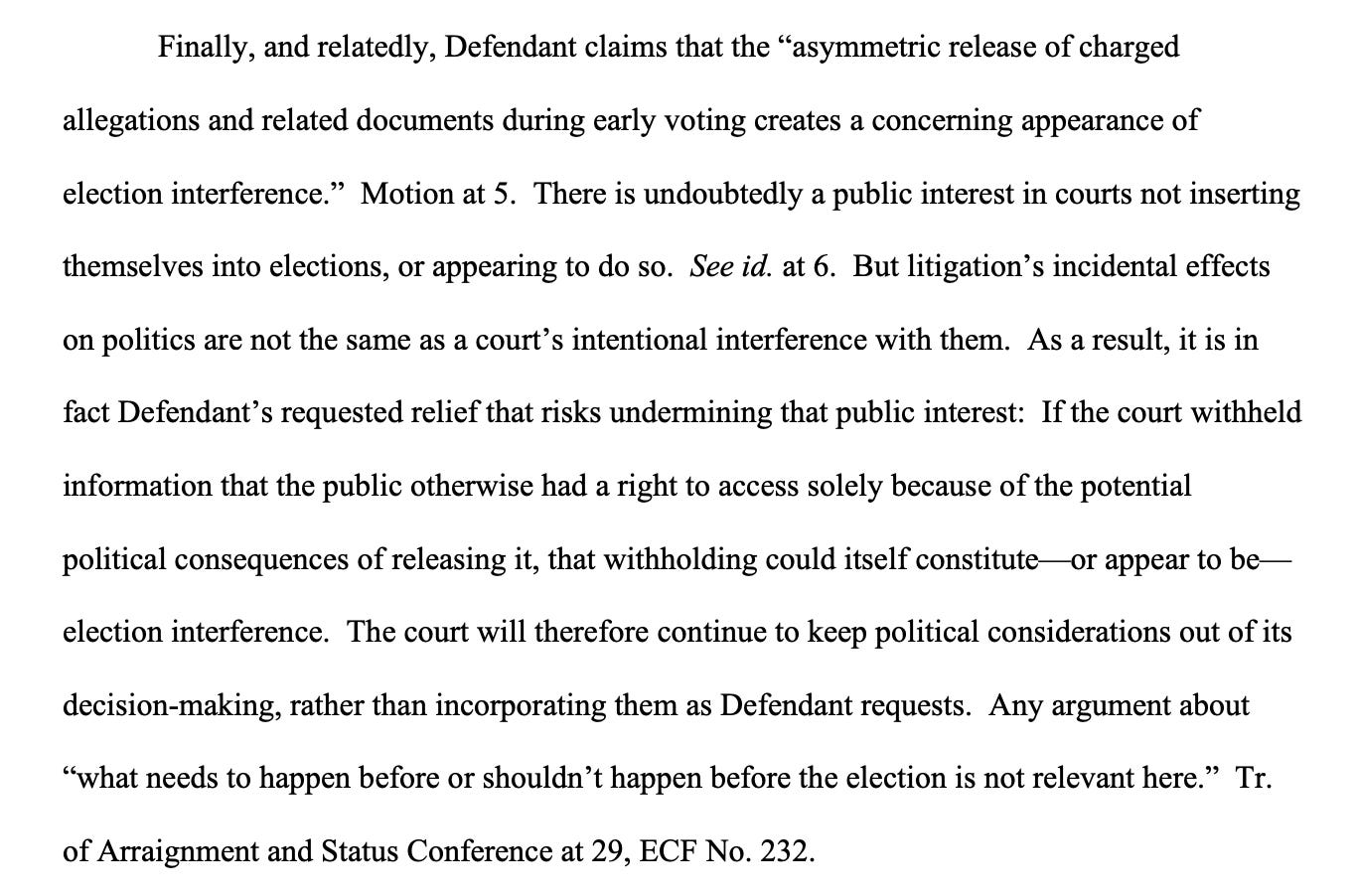
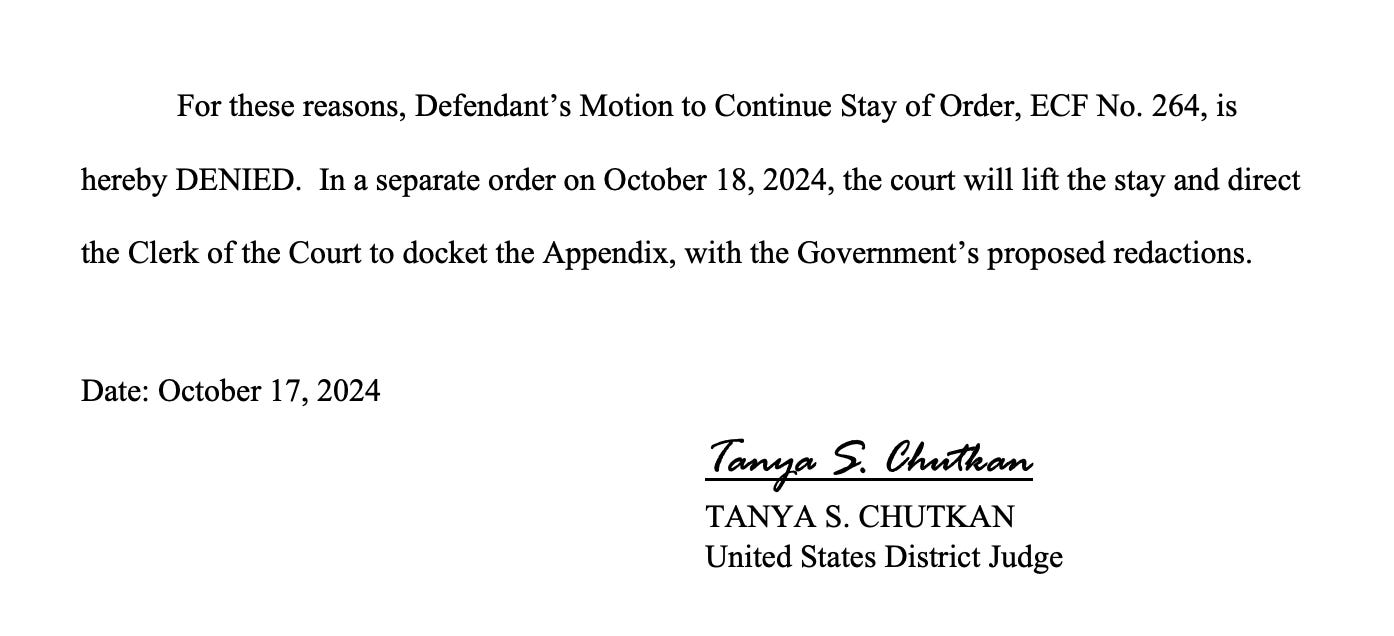
Three cheers for a “no-nonsense judge”.
Judge Chutkan you have made my day! Thanks for the breaking news, Joyce.
I’ve been watching the news for Judge Chutkan’s decision. Tomorrow will be quite a news day! Thank you Joyce for your synopsis of the Judge’s order.